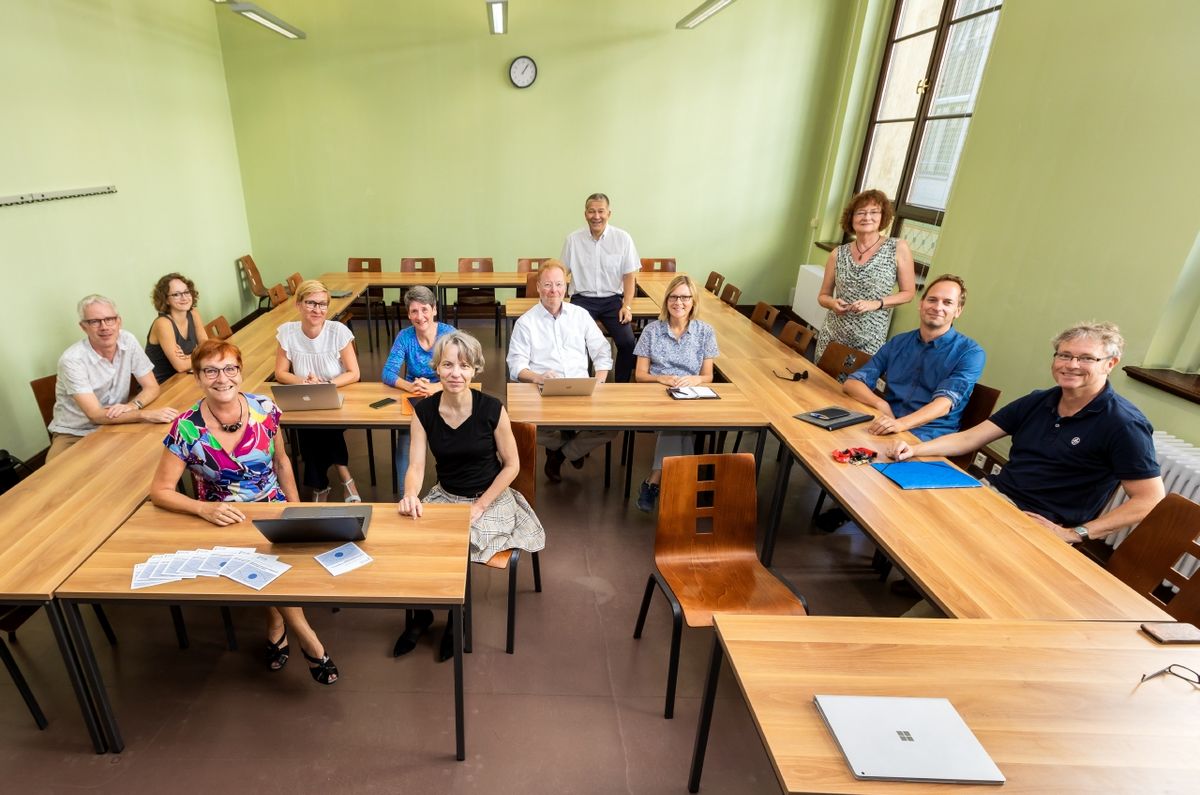The DFG-funded Research Units are teams of researchers working together on a research project, offering a high degree of flexibility in the composition of programme modules and the selection of research institutions. This lets the Research Units intensify symbiotic collaboration with non-university institutions and international partners. Funding is usually provided for eight years. Centres for Advanced Studies are a special funding format in the humanities and social sciences.
Research Units Hosted by Leipzig University:
The Humanities Centre for Advanced Studies “Multiple Secularities – Beyond the West, Beyond Modernities” examines different arrangements of secularity, or the distinction between religious and other social spheres in cultures outside the Western modern world. In this way, the researchers aim to both shed light on the mechanisms of this differentiation and understand the associated conflicts surrounding the power of interpretation and claims to validity in different world regions. In the first funding period, the researchers will concentrate on regions of the Islamic world and the wider Asian region.
Copper iodide is a unique p-conductive, wide-gap semiconductor, uniting high transparency in the visible spectral range with unsurpassed hole conductivity. In its first funding period, the “Copper Iodide as Multifunctional Semiconductor” Research Unit will tackle fundamental chemical and physical problems from an experimental and theoretical perspective. In the second funding period, the focus of the Research Unit will shift to practical issues, such as device applications and integration of devices, making use of the multifunctional properties of copper iodide as a contact material, in integrate circuits, for thermoelectric powering of such circuits, and in temperature sensors.
The central aim of Research Unit 5000 – Biotic Interactions, Community Assembly, and Eco-Evolutionary Dynamics as Drivers of Long-Term Biodiversity–Ecosystem Functioning Relationships – is to find out which mechanisms influence biodiversity–ecosystem functioning in the short and long term. To this end, it applies new experimental and analytical methods in one of the world’s longest-running biodiversity experiments: the Jena Experiment. Professor Nico Eisenhauer from the German Centre for Integrative Biodiversity Research (iDiv) Halle-Jena-Leipzig leitet die Forschungsgruppe, in der Wissenschaftlerinnen und Wissenschaftler aus den Bereichen Ökologie, Biochemie und Mikrobiologie interdisziplinär zusammenarbeiten.
Cyclic structure building and optimization are two central research areas of grammatical theory, but only a fraction of the research on these mechanisms involves their interaction. Led by Professor Jochen Trommer, the researchers from the Institute of Linguistics are investigating the empirical scope of models combining cyclicity and optimization, and hope to extend this to a comprehensive, representative subdomain of grammatical phenomena and unlock the full theoretical potential of these approaches. This Research Unit’s individual sub-projects are investigating interactions between all grammatical modules (morphology, syntax, semantics and phonology) and systematically comparing different cyclic optimization approaches for the same or closely related types of empirical data. An additional sub-project in the field of computer linguistics is examining abstract, formal properties of cyclic optimization approaches beyond the boundaries of grammatical sub-domains.






























































